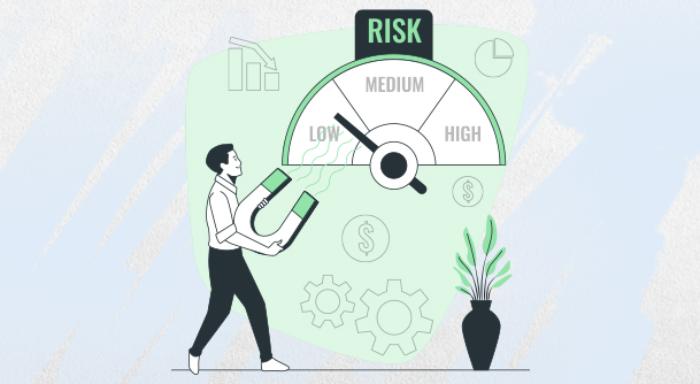What is Family Pension?
Blog Title
626 |
6/14/25 10:06 AM |
The misery of losing a loved one can be worsened by financial instability. A family pension ensures that your dependents have a steady income after the pensioner passes away. This also helps them maintain their savings plan for the future.
But who is eligible? How is the calculation done? How can you claim it? If you or a family member qualifies, knowing these details can help provide financial security at a difficult time.
Let's break it down step by step to understand the different aspects of family pension.
Who Can Get a Family Pension?
Dependents of a deceased government employee, retiree, or armed forces member are usually eligible for a family pension. However, who specifically is eligible? Let's see:
Spouse (Widow or Widower): You are the first to get the pension if you are the surviving spouse. The pension is paid for the rest of your life unless you remarry.
If a widow has no children, she can continue receiving the family pension after remarriage. However, she can receive as long as her total income from all sources (salary, property, business, or investments) is lower than the minimum family pension amount.
Child: If you are a dependent, eldest, and unmarried child of a deceased pensioner, you can receive a pension. You will receive it until you turn 25 or achieve financial independence. For twins, the family pension is split equally between them.
An adopted child is not considered a family member of the deceased pensioner and is not eligible for the pension.
Children with Disabilities: The pension will likely be provided to the child for the rest of their life if they have a permanent disability.
Dependent Parents: In the case of an unmarried pensioner, the pension will likely be provided to the dependent parents.
How is a Family Pension Calculated?
Your family pension amount is determined by the deceased pensioner's last pay cheque as well as the conditions of the particular pension plan. Let's see an overview of how it is computed:
Basic Family Pension: A family pension is usually 30% of the dead pensioner's last salary drawn.
Enhanced Family Pension: For a certain time, you can be eligible for a higher family pension if your loved one passes away while still employed by the government.
You can receive 50% of the pensioner's most recent salary for a period of 7 years, after which the normal rate of 30% is reapplied.
For example, If the deceased pensioner's last salary was ₹50,000, in that case, you will receive ₹25,000(50%) for the first 7 years, and after that period, you will be receiving ₹15,000(30%).
How to Apply for a Family Pension?
A family pension application requires the following steps:
Notify Authorities: First of all, you should provide information about the pensioner's demise to the concerned department where the deceased worked.
Prepare the Required Documents: Typically, the following paperwork is needed to complete the claim:
1) Certificate of Death issued to the Deceased Pensioner.
2) Relationship Proof (e.g., a spouse's marriage certificate, a child's birth certificate).
3) A copy of the Pension Payment Order (PPO) that was issued at the time of retirement.
4) Nominee's bank account information (accompanied by documentation, such as a cancelled cheque).
5) Any kind of identification proof, such as Aadhaar or PAN.
6) Medical Certificate (if a disabled dependent is making a claim).
Submit the Pension Application Form: You can get the application form by going to the appropriate authority's office or downloading it from their official website. When the form is ready, carefully fill it out and send it with the proper documentation.
Verification & Approval: After you have submitted the claim, the pension department processes it and checks the information. Following approval, the nominee's bank account receives a direct credit for the pension.
The scheme and the details of the provided documents may affect the processing time for the application.
Recent Amendments and Considerations
Direct Claims for Divorced and Separated Daughters: One of the most significant changes is the possibility for daughters who are divorced or separated to claim the family pension of their deceased parents immediately.
They were previously required to present court rulings or other legal papers, which caused a delay in their eligibility for payments.
Now that this procedure has been simplified, financial aid will be available more quickly in times of need.
Nominating Children Over Spouses: If a woman files for divorce, she can now choose her children as beneficiaries rather than her former spouse. However, the final rules depend on the specific policy of the pension provider.
Support for Childless Widows: As long as their income remains below the required criteria, childless widows can remarry without losing their family pension. However, this varies by jurisdiction and pension scheme.
Takeaway
After losing a loved one, managing finances can be challenging, but a family pension provides essential support. It’s not just about the money you receive; it’s about securing your future. It’s also about maintaining a savings plan for those who depend on it.
The secret to successfully receiving family pension benefits is to take the initiative. Many families lose out on benefits only because they are unaware that they are eligible for pension. Don't let it happen to you. Make the effort to fully understand the procedure, collect the necessary documentation, and ask for advice when necessary.
The family pension is a well-earned privilege that honours your loved one's years of devotion and commitment to work. In the long run, a small amount of work now can have a significant impact. So, do your research today and learn about how you can secure your family's future.










